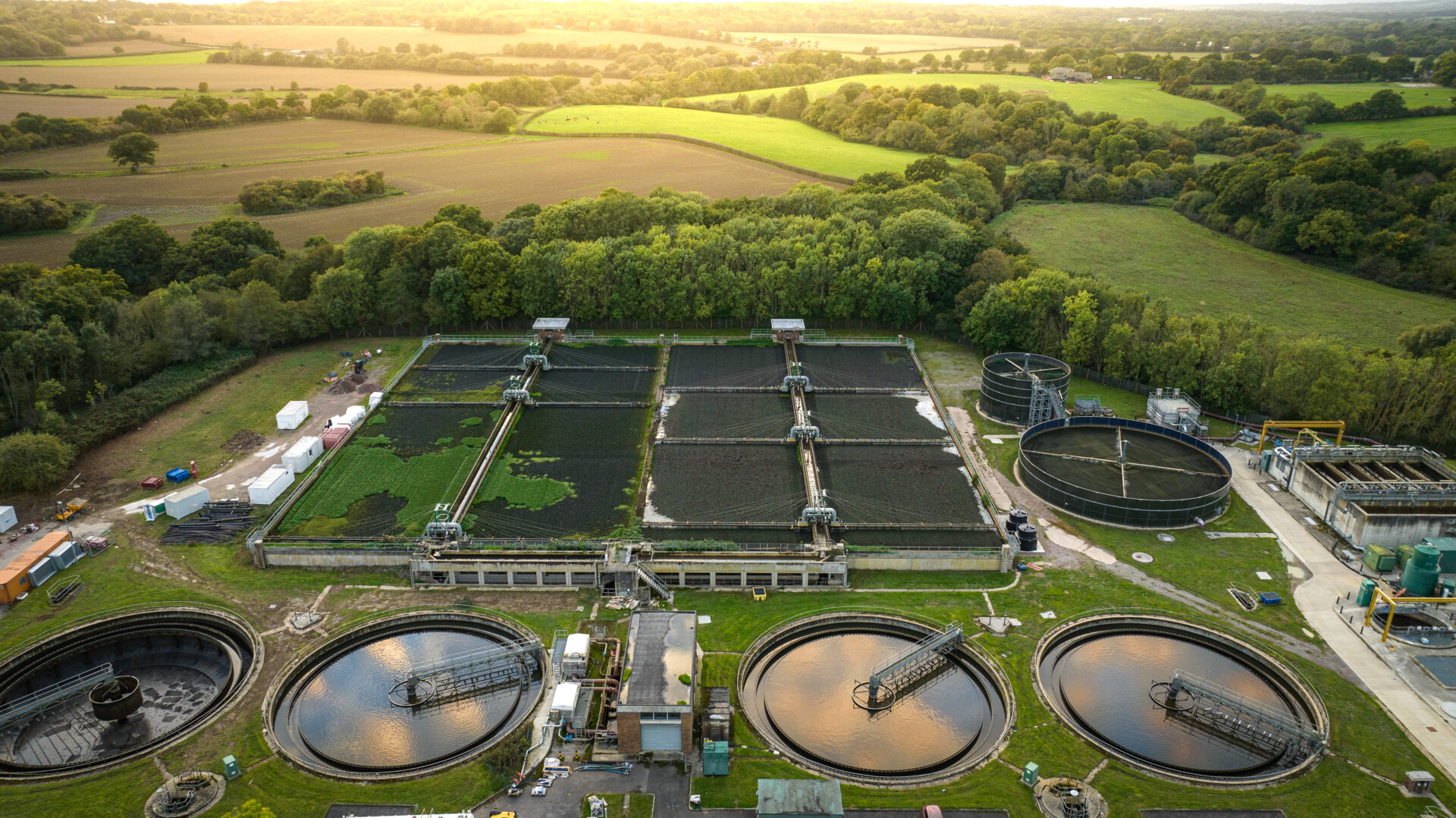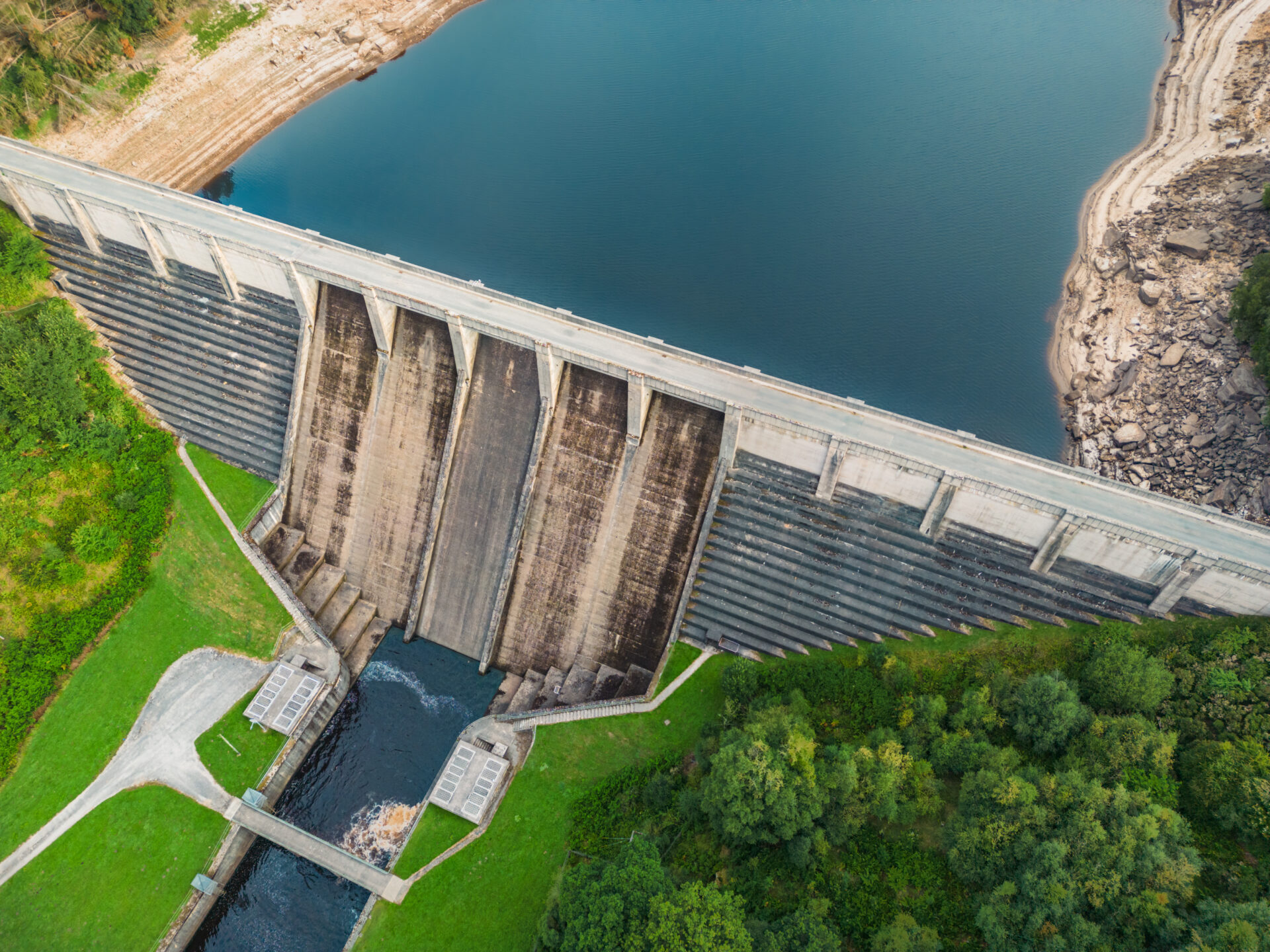In April 2017, England’s water industry underwent a significant change as the water market was deregulated. This meant that businesses, charities, and public sector organisations were no longer tied to a single regional provider for their water services. Instead, they were given the freedom to choose their water retailer from a range of licensed companies, overcoming previous restrictions.
Although this happened in 2017, many organisations are still unaware of the deregulation and their ability to choose their water provider. In this blog we will cover why the industry was deregulated and how it impacts your organisation.

Waste water treatment station in evening sun, Horsham, UK
Why did the deregulation of the water industry happen?
The deregulation of the water industry happened primarily to introduce competition and choice into the market. Before the deregulation, businesses, charities, and public sector organisations were typically limited to receiving water services from a single regional provider based only on their geographic location. This monopolistic structure often led to inefficiencies and limited options for consumers, as the industry failed to consider the different needs for different public sectors and organisations.
By deregulating the market, policymakers aimed to address these issues and create a more dynamic and consumer-oriented industry. Introducing competition allowed eligible customers to choose their water retailer from a pool of licensed companies, breaking the geographical constraints that had previously existed. This shift aimed to stimulate innovation, drive efficiency improvements, and ultimately enhance the quality of services provided to consumers.
Before deregulation, regional water companies handled both wholesale operations like water provision and treatment, as well as retail services such as billing and customer service. However, with deregulation, these services were separated. Regional companies continued to manage wholesale operations, while retail services were opened to competition among different retailers.

Aerial view of the dam at Thruscross Reservoir in North Yorkshire.
How does the deregulation of the water industry impact your organisation?
Since deregulation, the water market has experienced significant evolution. New water retailers have emerged, and the dynamics of competition have shifted as companies rival for market share and customer loyalty. Because of this, customer behaviours have evolved, with organisations seeking greater transparency, flexibility, and value from their water service providers.
Overall, the deregulation of the water industry has been extremely beneficial, offering organisations increased choice, efficiency improvements and tailored solutions for their water needs. However, while the aim to increase competition within the industry was successful and has been beneficial to suppliers, this can have a negative impact on organisations trying to find the right supplier in a pool of water retailers competing for your business, making it challenging for organisations to compare options and make informed decisions.
How can we help you?
At BP Consulting, our water management services aim to provide you and your business with competitive prices, industry clarity and peace of mind. We understand that every business has unique water management needs, which is why we offer customised solutions to meet your specific requirements.
- New Contracts: Setting up agreements for water services between organisations and water retailers.
- Bill Validation: Checking water bills to make sure they’re correct.
- Water Audits: Reviewing water use to find ways to save water and money.
- Monitoring Services: Keeping an eye on water use and quality to meet standards.
- Supply Management: Managing water usage efficiently to save money and reduce risk.
To learn more about your options and how we can help your organisation, book a consultation with one of our team using the button below.






